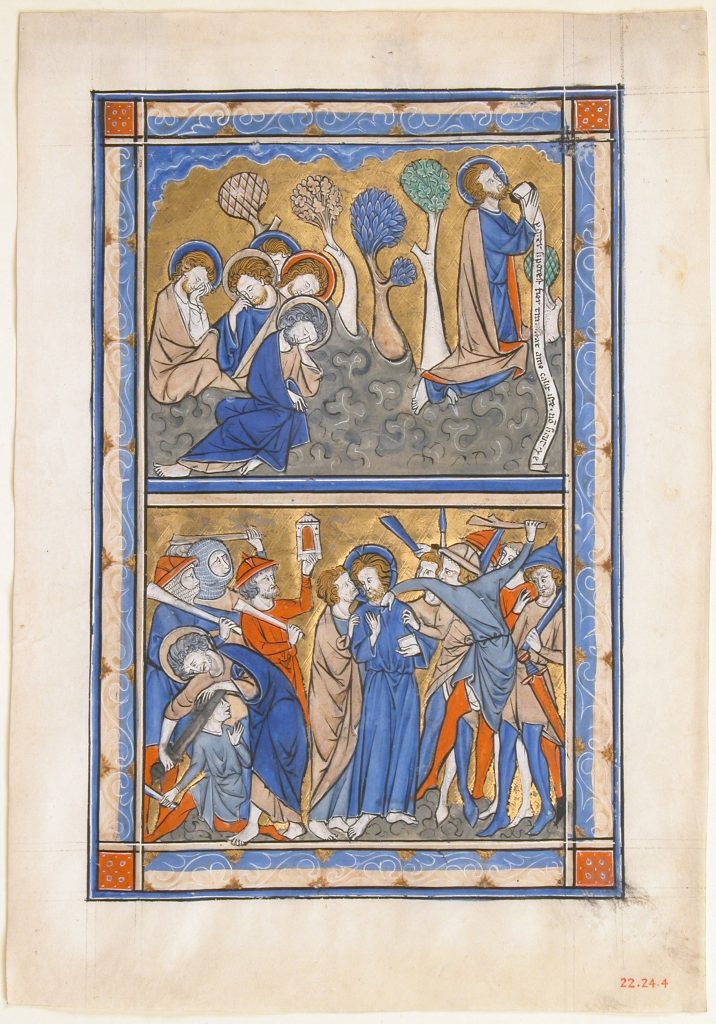“A common soldier dies without fear; Jesus died afraid.”Iris Murdoch wrote those words which, I believe, help expose an over-simplistic notion we have of how faith reacts in the face of death.
There’s a popular notion that believes that if we have strong faith we should not suffer any undue fear in the face of death, but rather face it with calm, peace, and even gratitude because we have nothing to fear from God or the afterlife. Christ has overcome death. Death sends us to heaven. So why be afraid?
This is, in fact, the case for many women and men, some with faith and some without it. Many people face death with very little fear. The biographies of the saints give ample testimony to this, and many of us have stood at the deathbed of people who will never be canonized but who faced their death calm and unafraid.
So why was Jesus afraid? And it appears he was. Three of the Gospels describe Jesus as far from calm and peaceful, as sweating blood, during the hours leading up to this death. Mark’s Gospel describes him as particularly distressed as he is dying: “My God, my God, why have you forsaken me!” What’s to be said about this?
Father Michael Buckley, the California Jesuit, once gave a famous homily within which he set up a contrast between the way Socrates faced his death and the way Jesus faced his. Buckley’s conclusion can leave us perplexed. Socrates seems to face death more courageously than Jesus does.
For example, like Jesus, Socrates was also unjustly condemned to death. But he faced his death with calm, completely unafraid, convinced that the just man has nothing to fear either from human judgment or from death. He discoursed very calmly with his disciples, assured them that he wasn’t afraid, imparted his blessing, drank the poison, and died.
And Jesus, how much to the contrary: In the hours leading up to his death he felt deeply the betrayal of his disciples, sweated blood in agony, and just minutes before dying cried out in anguish as he felt himself abandoned.
We know, of course, that his cry of abandonment wasn’t his final moment. After that moment of anguish and fear, he was able to hand his spirit over to his Father. In the end, there was calm; but, in the moments before, there was a time of awful anguish within which he felt himself abandoned by God.
If one does not consider the inner complexities of faith, the paradoxes it contains, it makes no sense that Jesus, sinless and faithful, should sweat blood and cry out in inner anguish as he faced his death. But real faith isn’t always what it looks like from the outside.
Many persons, and often times particularly those who are the most faithful, have to undergo a trial that the mystics call “a dark night of the soul.”
What’s “a dark night of the soul”? It’s a God-given trial in life wherein we, much to our own surprise and anguish, can no longer imagine God’s existence or feel God in any affective way in our lives. In terms of inner feeling, this is felt as doubt, as atheism. Try as we might, we can no longer imagine that God exists, much less that God loves us.
However, as the mystics point out and as Jesus gives witness to, this isn’t a loss of faith but actually a deeper modality of faith itself.
Up to this point in our faith, we have been relating to God mainly through images and feelings.
But our images and feelings about God are not God. So, at some point, for some people, though not for everybody, God takes away the images and the feelings and leaves us conceptually empty and affectively dry, stripped of all the images we have created about God. In reality, this is actually an overpowering light, it is felt as darkness, anguish, fear, and doubt.
And so we might expect that our journey toward death and our face-to-face encounter with God might also involve the breaking down of many of the ways we have always thought about and felt about God. And that will bring doubt, darkness, and fear in our lives.
Father Henri Nouwen gives a powerful testimony to this in speaking about his mother’s death. His mother had been a woman of deep faith and had each day prayed to Jesus: “Let me live like you, and let me die like you.”
Knowing his mother’s radical faith, Nouwen expected that the scene around her deathbed would be serene and a paradigm of how faith meets death without fear. But his mother suffered deep anguish and fear before she died and that left Nouwen perplexed, until he came to see that his mother’s lifelong prayer had indeed been answered. She had prayed to die like Jesus — and she did.
“A common soldier dies without fear; Jesus died afraid.” And so, paradoxically, do many women and men of faith.
Oblate of Mary Immaculate Father Ronald Rolheiser is a spiritual writer, www.ronrolheiser.com.
SPECIAL OFFER! 44 issues of Angelus for just $9.95! Get the finest in Catholic journalism with first-rate analysis of the events and trends shaping the Church and the world, plus practical advice from the world’s best spiritual writers on prayer and Catholic living, along with great features about Catholic life in Los Angeles. Subscribe now!

